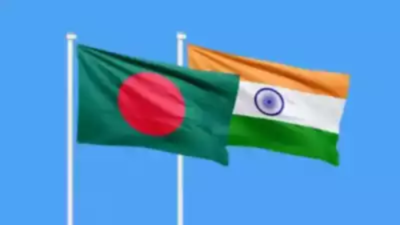
NEW DELHI: The Ministry of External Affairs (MEA) has reportedly informed a parliamentary panel that Bangladesh government has refused to recognise the systematic victimisation of minorities and has attempted to minimise the scale of violence against Hindus following Sheikh Hasina's government's departure, according to sources quoted by news agency PTI. During a presentation to the Standing Committee on External Affairs, led by Congress MP Shashi Tharoor, the ministry reportedly highlighted increasing religious symbolism in public spaces, with extremist groups advocating for an Islamic caliphate filling the political void, sources indicated. Additionally, foreign secretary Vikram Misri provided a briefing on "Future of India-Bangladesh Relationship" and matters concerning the Indian diaspora globally.
Subsequently, Tharoor informed the press that the discussion primarily centred on Bangladesh relations, describing it as thorough, and noted the committee's adoption of its diaspora report. The ministry revealed that Bangladesh's army chief publicly acknowledged the risks posed by internal conflicts. It noted recurring instances of mob violence, property destruction, and offences against women and minorities.

According to the PTI sources, the committee was informed that Bangladesh Chief Adviser Muhammad Yunus and associates dismissed reports of minority persecution as media hyperbole, characterising them as "political killings" of Awami League members rather than communal violence. The ministry also indicated that working-level engagement with Bangladesh facilitates bilateral cooperation whilst addressing strategic concerns. It emphasised the importance of Bangladesh considering regional security matters whilst pursuing mutual interests.
Officials stressed Bangladesh's stability as crucial for regional security, highlighting the significance of maintaining constructive bilateral relations for border safety. They expressed serious concern over the release of violent Islamic extremists previously convicted of serious offences, viewing it as a threat to regional and global security. The Indian administration has repeatedly urged the interim government to prosecute those responsible for minority-targeted violence.
This report comes on the day PM Modi conveyed a message to Yunus affirming India's dedication to strengthening ties with its eastern neighbour, acknowledging Bangladesh's independence day. "This day stands as a testament to our shared history and sacrifices, which have laid the foundation of our bilateral partnership. The spirit of the Liberation War of Bangladesh continues to remain a guiding light for our relationship, which has flourished across multiple domains, bringing tangible benefits to our peoples," PM Modi wrote.
"We remain committed to advancing this partnership, driven by our common aspirations for peace, stability, and prosperity, and based on mutual sensitivity to each other's interests and concerns," he added. Bangladesh's Independence Day, also known as National Day, marks the nation's declaration of sovereignty from Pakistan on this date in 1971. Under the leadership of then Prime Minister Indira Gandhi, India played a significant role in the liberation of Bangladesh, known as East Pakistan at the time.
.














